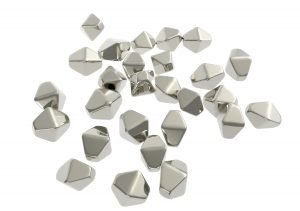
Depiction of titanium dioxide nanoparticles.
In two recent developments, titanium dioxide (TiO2) is driving advances in solar power generation and cameras and optical devices for virtual and augmented reality. Chlorine facilitates the production of TiO2 by transforming and purifying the materials.
Heat transfer in solar power plants could be made dramatically more efficient using nanofluids made with TiO2, reports Phys.org. A recent paper in the Renewable Energy journal describes a way to improve the efficiency of this heat transfer by adding tiny particles of titanium dioxide. Known as nanoparticles, these increase the amount of electricity generated from solar plants. Thanks to the titanium dioxide nanoparticles, the ability of the heat-transfer material to conduct heat rose by almost 53%, and the efficiency of the nanofluids improved by up to 35%.
In the second innovation, TiO2 has been used to make a distortion-free lens with a simple, flat surface, which may revolutionize optical devices (Nature Nanotechnology). Using tiny, fin-shaped particles of TiO2 known as nanofins, this can focus the full spectrum of visible light at high resolution on one spot, which previously required a stack of bulky, curved conventional lenses. These were required because light of various colors travels at different speeds through lenses. The new ‘metalens’ – which is reportedly thin, easy to manufacture and cost effective – opens new possibilities both in traditional cameras and in virtual and augmented reality (Photonics.com).
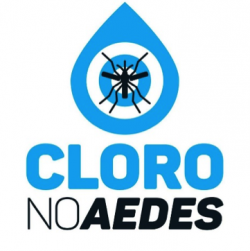 In response to the Zika virus epidemic of 2015-2016, the Brazilian Association for the Chlor-Alkali and Derivatives Industry (Abiclor) launched the CloroNaZika campaign. This campaign informed citizens and raised awareness on how to prevent the proliferation of the mosquito Aedes aegypti by using chlorine bleach. As the Zika epidemic lessened in 2017, the campaign continues today as Cloro no Aedes.
In response to the Zika virus epidemic of 2015-2016, the Brazilian Association for the Chlor-Alkali and Derivatives Industry (Abiclor) launched the CloroNaZika campaign. This campaign informed citizens and raised awareness on how to prevent the proliferation of the mosquito Aedes aegypti by using chlorine bleach. As the Zika epidemic lessened in 2017, the campaign continues today as Cloro no Aedes.
Scientific studies from the University of São Paulo have shown that chlorine bleach is almost 100% effective in preventing the development of Aedes aegypti mosquito larvae, the type of mosquito that spreads Zika, dengue, chikungunya, and yellow fever. Since 80% of mosquitos’ proliferation starts inside residences, the campaign guides people on how to use chlorine bleach to clean bins, toilets, gardens, water tanks, drains, plumbing, planters and other items that collect water to prevent the growth of mosquito larvae.
Abiclor, in partnership with the Brazilian government, distributed leaflets in strategic spots of Brazil’s major cities containing information on how to properly use chlorine bleach to be effective against mosquito larvae development. Radio and print ads also helped spread the message to the people of Brazil. The campaign continues to be publicized on social media, including Facebook, Twitter, and Instagram.
In this application, chlorine chemistry has proven to help the people of Brazil combat the diseases spread by the mosquito Aedes aegypti.
 In 2015, India’s Prime Minister Narendra Modi announced the Smart Cities Mission. The objective of the Smart Cities Mission is to upgrade 100 existing cities or build new Smart Cities in India. These cities are to provide core infrastructure, a higher quality of life to residents, and a clean and sustainable environment through the application of sustainable solutions based on inclusive development.
In 2015, India’s Prime Minister Narendra Modi announced the Smart Cities Mission. The objective of the Smart Cities Mission is to upgrade 100 existing cities or build new Smart Cities in India. These cities are to provide core infrastructure, a higher quality of life to residents, and a clean and sustainable environment through the application of sustainable solutions based on inclusive development.
To achieve the Smart Cities Mission, the country aims to enhance physical infrastructure, such as reliable clean water, electricity supply, sanitation, solid waste management, public transport, IT connectivity, citizen safety, as well as provide social facilities such as health, education, and recreational facilities. Additionally, technology solutions will be applied for electronic services delivery, waste to compost/energy, treatment/recycling of wastewater, renewable energy, green buildings, intelligent traffic management, and parking, among other issues faced by cities. The Indian government clearly defined what they meant by “Smart.” Over half of the 11 objectives were environmental and main components of the metabolism of a city.
Chlorine chemistry will play a vital role in accomplishing India’s Smart Cities Mission. Products of the chlor-alkali manufacturing process, chlorine and sodium hydroxide, are essential to manufacturing PVC pipes that transport water, energy-saving vinyl windows, fiber optic cables and computer chips for IT infrastructure, solar power panels that generate electricity, “pickled” steel used in construction and electricity distribution, treated water, and many other products.
While India strives to enhance the livability and sustainability of its cities, chlorine chemistry will continue to be a key element to attain the goals of the Smart Cities Mission.
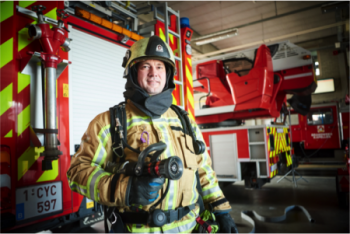 Euro Chlor, the European federation of chlor-alkali manufacturers, has launched a new communications programme which demonstrates how chlor-alkali helps Europe to work safely, efficiently and competitively.
Euro Chlor, the European federation of chlor-alkali manufacturers, has launched a new communications programme which demonstrates how chlor-alkali helps Europe to work safely, efficiently and competitively.
Over 7500 people are directly employed in making chlorine and caustic soda (chlor-alkali) in Europe with many of the derived products, which we rely on every day, helping to make our lives easier, safer or healthier.
In addition to these chemical professionals, many other jobs also need chlor-alkali chemistry; jobs which would be very different, less efficient or more dangerous without it: decorators, surgeon, factory workers, water network technicians, pharmaceutical producers, plumbers and more.
The new ’17 Successes’ initiative will provide real-life examples of 17 Europeans (17 = chlorine’s number in Periodic Table) whose success at work is all thanks to chlor-alkali chemistry. To start, short biographies of a Firefighter, a Police Officer and an Animal Carer are given with more to come over the coming months. These are presented on a new website where more can be discovered at www.17successes.com.
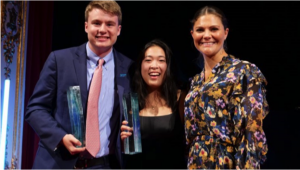
New York high school students Ryan Thorpe and Rachel Chang, receive the 2017 Stockholm Junior Water Prize from H.R.H. Crown Princess Victoria of Sweden in Stockholm
Photo credit: The Stockholm International Water Institute
At this summer’s Stockholm International Water Institute’s World Water Week meeting, two New York high school students were awarded the Stockholm Junior Water Prize for their rapid contaminant detection and water purification system. Ryan Thorpe and Rachel Chang accepted the prize from Crown Princess Victoria of Sweden at the August festivities.
The students engineered graphene-based biosensors to detect minute levels of specific bacteria in less than one second, a great improvement over conventional methods, which can take one to two days. An added bonus: The biosensors can detect as few as one colony forming unit (CFU) of bacteria. Other rapid DNA detection methods often require 1,000 CFUs.
The water purification part of the system is achieved by injecting hydrogen peroxide and sodium hydroxide into contaminated water. These chemicals react to produce hydroxyl free radicals, short-lived, highly reactive chemical species composed of oxygen and hydrogen. Hydroxyl free radicals eliminate organic matter (e.g., bacteria) in the water, producing carbon dioxide and water. Dr. Joan Rose, the 2016 recipient of the Stockholm Water Prize congratulated the “highly impressive and articulate young people,” noting, “The creative energy with which they have tackled a significant global challenge is exactly what the world community needs to get us to a better world for all.”
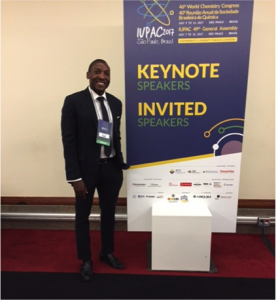 Responding to the theme of the 2017 World Chemistry Congress, “Sustainability and Diversity in Chemistry,” Mr. Wesley Laine, founder of Haiti-Philanthropy, presented “Chlorination of Haiti’s Drinking Water – A Sustainable Model for Developing Countries,” at the Congress on July 11, 2017. Mr. Laine, a 2017 graduate of Harvard Law School, described his work installing simple chlorinator devices that utilize “hockey puck” tablets of calcium hypochlorite to disinfect drinking water in the rural southeast of Haiti. Drinking water chlorination destroys most waterborne pathogens, including Vibrio cholera, the bacteria inadvertently introduced by UN peacekeepers after an earthquake that devastated Haiti in 2010. Mr. Laine noted that community involvement in maintaining chlorinators and purchasing chlorine tablets through a “chlorine bank” is key to developing a sustainable system of safe drinking water provision. Haiti-Philanthropy is supported in part by the American Chemistry Council’s Chlorine Chemistry Division.
Responding to the theme of the 2017 World Chemistry Congress, “Sustainability and Diversity in Chemistry,” Mr. Wesley Laine, founder of Haiti-Philanthropy, presented “Chlorination of Haiti’s Drinking Water – A Sustainable Model for Developing Countries,” at the Congress on July 11, 2017. Mr. Laine, a 2017 graduate of Harvard Law School, described his work installing simple chlorinator devices that utilize “hockey puck” tablets of calcium hypochlorite to disinfect drinking water in the rural southeast of Haiti. Drinking water chlorination destroys most waterborne pathogens, including Vibrio cholera, the bacteria inadvertently introduced by UN peacekeepers after an earthquake that devastated Haiti in 2010. Mr. Laine noted that community involvement in maintaining chlorinators and purchasing chlorine tablets through a “chlorine bank” is key to developing a sustainable system of safe drinking water provision. Haiti-Philanthropy is supported in part by the American Chemistry Council’s Chlorine Chemistry Division.
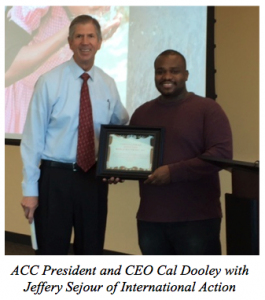 In 1993, the United Nations designated March 22 as World Water Day. Almost 25 years later, efforts to tackle difficult global water problems continue. This year’s theme is “why waste water?” Globally, the vast majority of wastewater—from homes and communities—flows back to the environment untreated or reused, contributing to contaminated drinking water while losing valuable nutrients and other recoverable materials. The UN Sustainable Development Goal (SDG) 6 aims to “Ensure availability and sustainable management of water and sanitation for all.”
In 1993, the United Nations designated March 22 as World Water Day. Almost 25 years later, efforts to tackle difficult global water problems continue. This year’s theme is “why waste water?” Globally, the vast majority of wastewater—from homes and communities—flows back to the environment untreated or reused, contributing to contaminated drinking water while losing valuable nutrients and other recoverable materials. The UN Sustainable Development Goal (SDG) 6 aims to “Ensure availability and sustainable management of water and sanitation for all.”
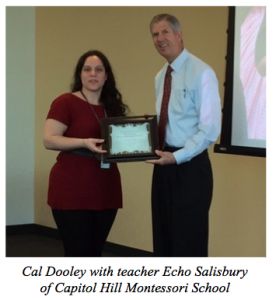
As part of the celebration of World Water Day, the American Chemistry Council (ACC) welcomed 35 elementary school students from the Capitol Hill Montessori School in Washington, DC. Jeffrey Sejour of International Action, which is working to chlorinate drinking water in Haiti, spoke with the students about water and wastewater problems that continue to plague Haitians. The students also video-conferenced with Andrew Coco of Pure Water for the World from their water quality laboratory in Port-au-Prince, Haiti. The event concluded with a hands-on water chemistry experiment to measure the presence of residual chlorine in water to see which samples were disinfected and thus safe to drink. In recognition of their ongoing efforts to provide safe drinking water, ACC’s Chlorine Chemistry Division donated $5,000 to International Action on behalf of the students of Capitol Hill Montessori School.
“From the salt of the Earth” come hundreds of useful products that make life in the 21st century possible. How so?
Salt, extracted from the deposits of ancient seas, along with water and electricity, are the three ingredients from which two widely used commodity chemicals are produced.
Those chemicals, chlorine and sodium hydroxide, play a significant role in the manufacture of products such as life-saving pharmaceuticals, PVC medical devices, silicon chips for computers, solar panels, wind turbines, titanium metal for artificial joint replacements, water treatment chemicals, fiber optic cables, aluminum, paints, and much more…
The American Chemistry Council’s (ACC’s) Chlorine Chemistry Division recently updated its Chlorine and Sodium Hydroxide Product Trees. Access the Chlorine Product Tree and the Sodium Hydroxide Product Tree to explore a multi-faceted chemistry based on “the salt of the Earth.”
CLOROSUR is pleased to invite you to participate in the X International Technical Seminar and Table Top Expo to be held on November 16 – 18, 2016 in Buenos Aires/Argentina. Back-to-back with the Technical Seminar, on Friday, November 18 the World Chlorine Council Global Safety Team (WCC GST) will hold its Safety Workshop focused on Process Safety Management (PSM).
Parallel to the CLOROSUR Technical Seminar and WCC Safety Workshop, a Table Top Expo featuring technology suppliers, materials and equipment manufacturers, as well as companies that provide services to the Chlor-alkali industry will allow participants to meet their representatives.
In addition to the technical sessions and exposition, participants that are interested will be able to visit CLOROSUR member company TRANSCLOR facilities located at Pilar, 40 km from Buenos Aires on Wednesday morning November 16. CLOROSUR will provide ground transportation from the Hilton Hotel to the plant and back. On the evening of the 16th a Welcome Cocktail will be held by the Hotel’s pool.
The entire program above will take place at the HOTEL HILTON in Buenos Aires/Argentina, with accommodation available at a special rate for participants.
If you have any question please contact Martim A. Penna at mpenna@clorosur.com.br or Mrs. Lucimara Murakami at lucimara@clorosur.com.br, phone number (55 11) 2148-4780 and Meaghan Groah at Meaghan_Groah@americanchemistry.com, phone number (O: 202-249-6716 – C: 717-333-1495).
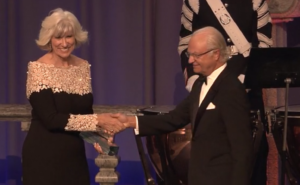 Over 3,000 scientists, government officials and policy experts representing 120 countries gathered in Stockholm 28 August – 2 September 2016 for the 26th annual World Water Week conference. Organized by the Stockholm International Water Institute, World Water Week is “the annual focal point for the globes’ water issues,” according to the Institute’s website. A highlight of the week was the presentation by H.M. Carl XVI Gustaf, King of Sweden, of the Stockholm Water Prize to Water Quality & Health Council member, Professor Joan B. Rose.
Over 3,000 scientists, government officials and policy experts representing 120 countries gathered in Stockholm 28 August – 2 September 2016 for the 26th annual World Water Week conference. Organized by the Stockholm International Water Institute, World Water Week is “the annual focal point for the globes’ water issues,” according to the Institute’s website. A highlight of the week was the presentation by H.M. Carl XVI Gustaf, King of Sweden, of the Stockholm Water Prize to Water Quality & Health Council member, Professor Joan B. Rose.
Professor Rose, an original member of the 25-year old Council, is a Michigan State University microbiologist and world expert on the protozoan parasite Cryptosporidium. As a co-founder of the ambitious Global Water Pathogen Project, Professor Rose organized over 100 scientists from around the world into nine expert teams to address key fecal pathogen groups and the measures necessary to control those pathogens. The project will feature an online “open access integration platform” that will be updated regularly by the experts. Using the online tool, engineers and scientists working anywhere in the world will be empowered to tap into the best available science for reducing human exposure to fecal pathogens.